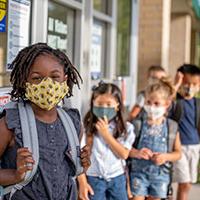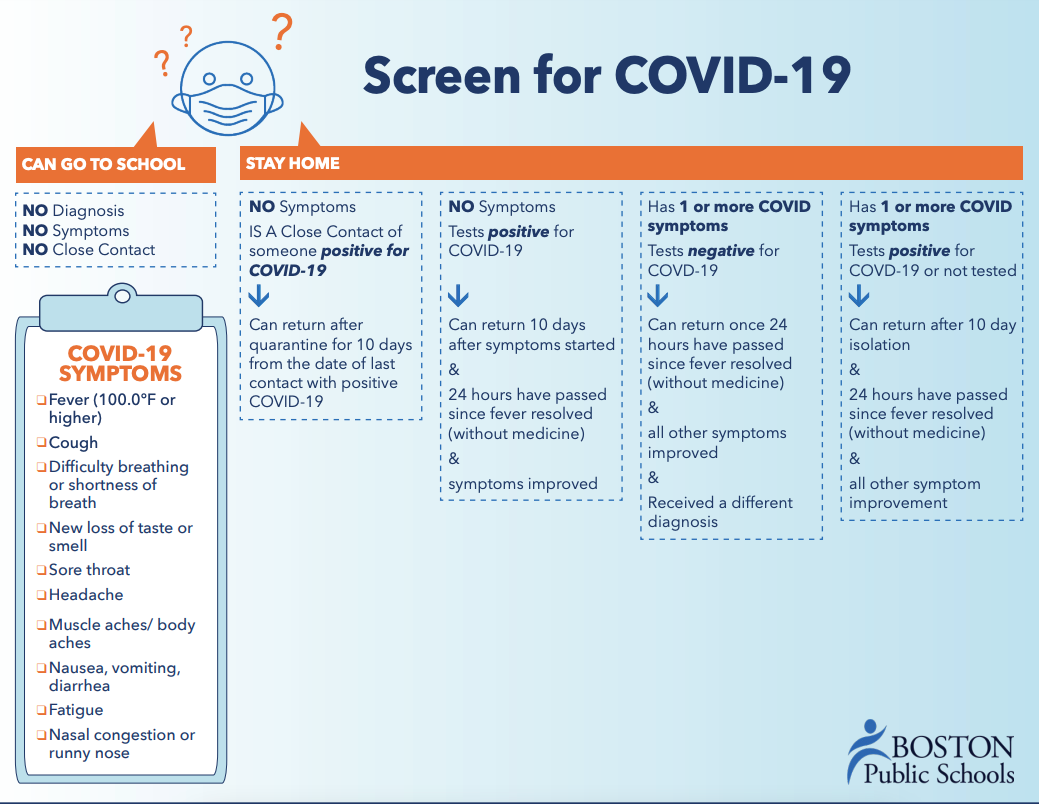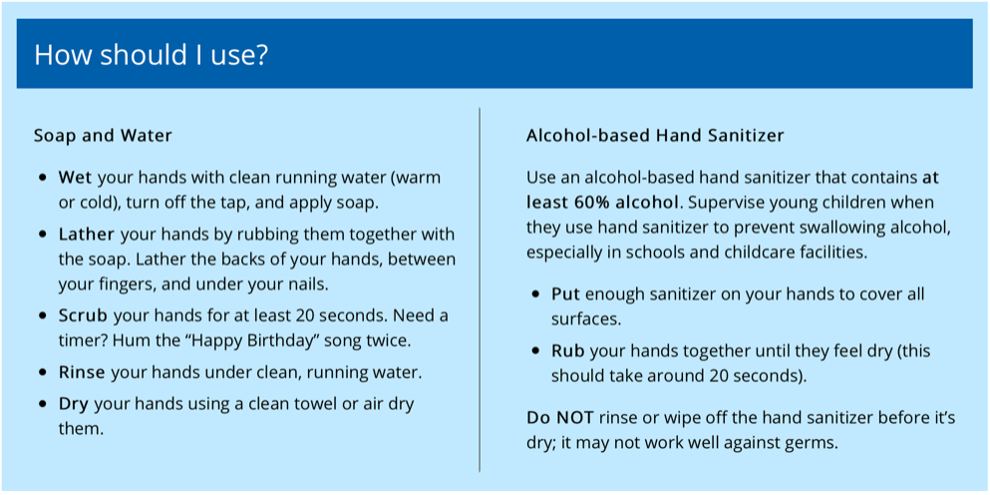
The 2020-2021 school year taught us that when faced with adversity, we can pivot and continue to educate our children and move forward. However, as vaccinations have become more widespread, and we learn more about treating patients who contract COVID-19, schools across the country have decided to reopen and try to return to some semblance of normalcy.
Returning to in-person learning this year is beneficial for children’s physical, mental and emotional health. With the spread of the Delta variant and children under the age of 12 not yet eligible for vaccines, many parents are concerned about the safety of returning to in-person learning. However, there are safety mitigations in place and can return to school safely.
“As a fellow parent, I can commiserate with parents who are worried about how to keep our kids safe as they return back to school this fall. The American Academy of Pediatrics recommends masks in school for all children over the age of 2 years. It's a safe method which can help keep our kids from getting germs and transmitting them in return. Continue to talk to your kids about good handwashing and keep them home when they get sick,” said Paul Ahn, MD, GRMDC Pediatrician.
Mask Up
Masks are not 100 % foolproof against viruses, but they are proven to slow the spread of contagions, including COVID-19. For that reason, all Boston Public Schools (BPA) staff and students must wear a mask when on school property, and while riding the school bus this year. Acceptable face coverings include multi-layered cotton masks, disposable masks and KN-95 or N-95 masks. Additionally, if your child forgets a mask, the school system will provide two reusable masks to all students and staff, according to BostonPublicSchools.org. Note: masks with valves, open bandanas or gaiters and scarves are not acceptable face coverings.
Masks do not pose a health concern for children or healthy adults. If your child has a condition in which they cannot wear a mask, contact your local school to find out available options.
COVID-19 Vaccines
The good news is that as of August 3, 61% of Boston-area residents are fully vaccinated. At the time of publication, 850,382 total doses of a COVID-19 vaccine have been given. This highlights the Boston community’s dedication to protecting themselves and our community at large.
Dr. Ahn adds, “I recommend the covid vaccine for those who are eligible (currently ages 12 years and up). Feel free to communicate with your doctor if you have any questions about the covid vaccine. It's almost unbelievable all of the different changes that keep happening throughout this past year, but we can try to take a deep breath and take it one step at a time. We are in this together!”
The Greater Roslindale Medical and Dental Center is committed to providing free vaccines to our community through our regular vaccine appointments, mobile vaccine clinics and pop-up events through August. Be sure to visit our website and Facebook page often for updates on dates, locations and times. It’s our goal to reach community immunity!
“The new Delta variant version of the virus that causes COVID-19 is much more contagious than the versions we have seen before. All across the country we are seeing surges in case numbers, especially now in children. It is more important than ever to get vaccinated soon and use practices like masking and social distancing to slow the spread and protect yourself, your children, and our community," urges David Gootenberg, MD, PhD, pediatrics, GRMDC. Dr. Gootenberg studied virology at Harvard Medical School and his experience in study and practice lends additional expertise on the subject.
Social Distancing is Not a Thing of the Past
It is as important as ever to continue to social distance. When your child is playing a sport, or outside on the playground without a mask on, the 3 to 6-foot rule is the golden rule to keep from spreading germs.
According to the CDC, some people may be able to spread the virus without showing symptoms. By staying at least 2 arm lengths from other people, you can protect yourself and others who are at high risk from getting very sick.
When to Stay Home
It can be confusing knowing if your child has a routine cold, allergies or if it is COVID
According to BostonPublicSchools.org, your child must stay home if you or anyone in your home have the following symptoms:
- Fever (100 degrees F or higher without the use of fever-reducing medication)
- Difficulty breathing or shortness of breath
- Cough
- Headache
- Sore throat
- Muscle or body aches
- Nasal congestion or runny nose
- Loss of taste or smell
- Nausea, vomiting or diarrhea
When in doubt, call the Center to discuss your child’s symptoms with a provider.

Wash Your Hands
Washing hands is a tried-and-true method to stop the spread of germs. Wash your hands often with soap and water and for a minimum of 20 seconds, about the same length of time it takes to sing Happy Birthday in your head.
If soap and water aren’t readily available, hand sanitizer with at least 60% alcohol can help and should be rubbed into all surfaces of the hands for again, 20 seconds.
Regardless of the washing method you use, soap and water, or sanitizer, avoid touching your eyes, mouth or nose.

Be Prepared
You can send your child to school with a safety kit that includes hand sanitizer, sanitizing wipes, extra masks and zip up bags to put worn masks in, to remind them of the importance of staying safe.
We don’t know what this school year will look like, whether there may be temporary closures due to cases and/or exposure, but by following the outlined safety measures, together we can ensure that our children can have a school year that provides a sense of security, safety and normalcy.
If you have any questions about your child’s health and COVID-19, please contact your provider to discuss further.
